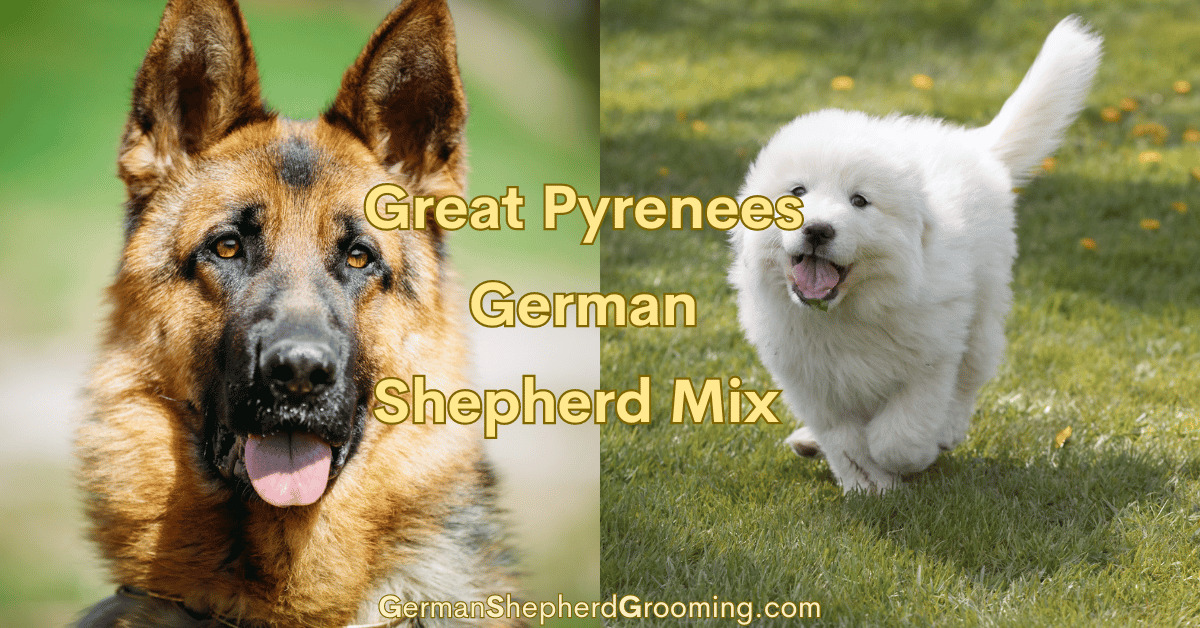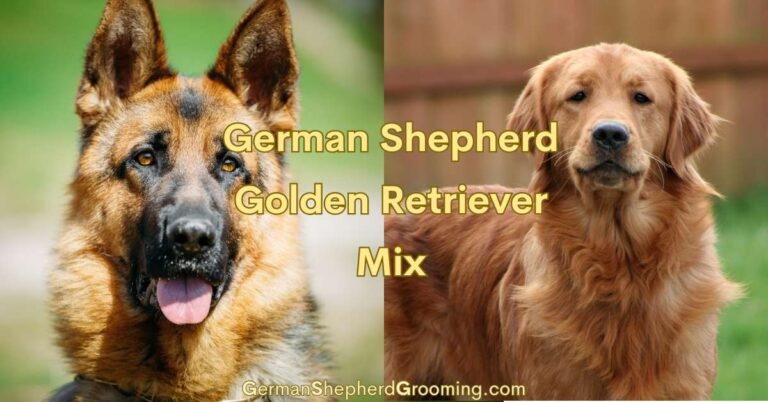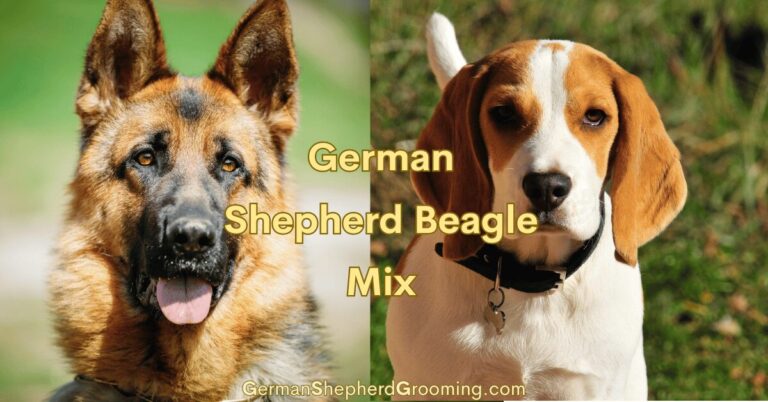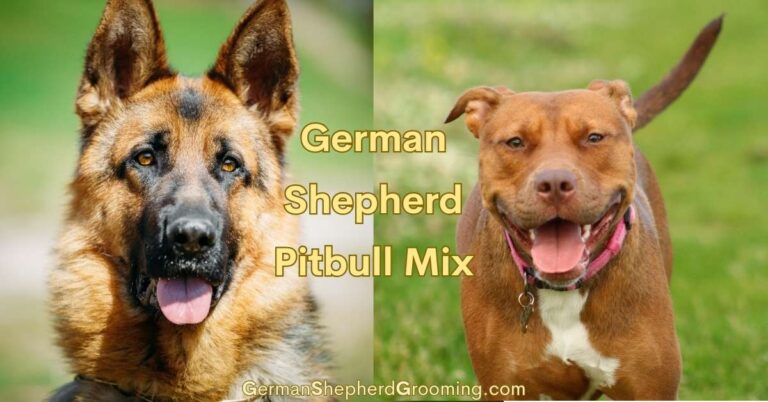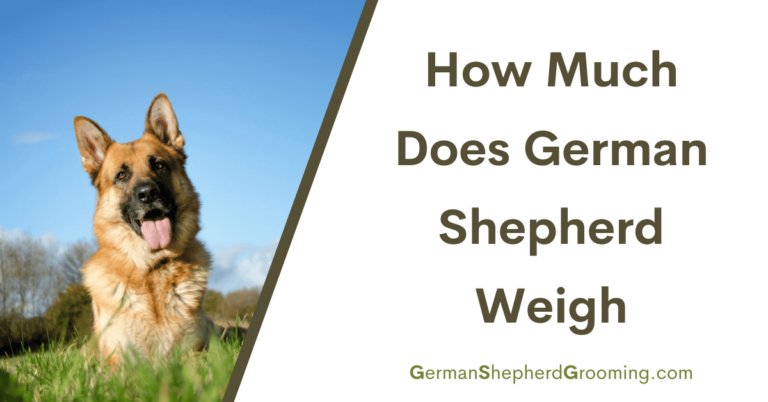Great Pyrenees German Shepherd Mix Breed Info
The Great Pyrenees German Shepherd mix, also known as the Pyrenees Shepherd, is a stunning and majestic crossbreed. This mix combines the strength and protective nature of the Great Pyrenees with the intelligence and versatility of the German Shepherd. In this article, we will explore the background of the Pyrenees Shepherd, adoption considerations, adaptability, and health and grooming needs.
The Pyrenees Shepherd’s Background
The Great Pyrenees German Shepherd mix is a relatively rare and unique designer breed. It is a result of crossing a purebred Great Pyrenees with a purebred German Shepherd. The Great Pyrenees is a large, gentle, and protective breed that originated in the Pyrenees Mountains of France and Spain. The German Shepherd, on the other hand, is a versatile working breed that originated in Germany and is known for its intelligence and loyalty.
Adoption Matters
If you are considering adopting a Pyrenees Shepherd, there are several factors to consider. First and foremost, it’s important to remember that this mix can inherit traits from both parent breeds, so its temperament, size, and appearance can vary. It’s essential to research and understand both breeds to have an idea of what to expect from your Pyrenees Shepherd.
Additionally, the Pyrenees Shepherd may not be suitable for everyone. This mix requires experienced and dedicated owners who can provide proper training, socialization, and a structured environment. Due to their size and protective nature, they may not be suitable for novice owners or families with small children. It’s important to ensure that you have the time, resources, and knowledge to meet the needs of a Pyrenees Shepherd before bringing one into your home.
Adaptability
The Pyrenees Shepherd is generally adaptable to different living situations. However, due to its large size and active nature, it is more suited for homes with a spacious yard where it can roam and play. They may not adapt well to apartment living or confined spaces. Additionally, the Pyrenees Shepherd thrives in cooler climates and may struggle in hot and humid environments. Providing adequate shade, fresh water, and a cool resting area is essential to keep them comfortable in warmer weather.
Good For Novice Owners
The Pyrenees Shepherd may not be the best choice for novice dog owners due to its size, strength, and protective instincts. This mix requires a confident and experienced owner who can provide consistent leadership, socialization, and training. They have a strong protective nature and may exhibit guarding behaviors, which can be challenging to manage for inexperienced owners. It’s important to have a solid understanding of canine behavior and training methods to ensure a well-adjusted and well-behaved Pyrenees Shepherd.
Sensitivity Level
The sensitivity level of the Pyrenees Shepherd can vary from dog to dog. Some individuals may be more sensitive and responsive to their owner’s emotions, while others may be more independent and less affected by external factors. Early socialization and positive reinforcement training methods are crucial to ensure a well-rounded and emotionally stable Pyrenees Shepherd.
Tolerates Being Alone
The Pyrenees Shepherd may have a moderate tolerance for being alone. However, due to their strong bond with their family and their protective nature, they may not do well when left alone for long periods of time. They thrive on human companionship and may become anxious or exhibit destructive behaviors if left alone for extended periods. Providing mental stimulation and interactive toys can help alleviate boredom and keep them occupied while you’re away.
Weather Considerations
The Pyrenees Shepherd has a thick double coat that provides insulation and protection from cold weather. They are well-suited for cooler climates and can tolerate colder temperatures better than hot and humid conditions. It’s important to provide them with adequate shelter, especially during extreme weather conditions, and monitor their exposure to heat to prevent overheating.
Affectionate Companions
The Pyrenees Shepherd can be an affectionate companion, forming a strong bond with its family members. They are known for their loyalty and devotion. However, due to their protective instincts, they may be reserved or aloof with strangers. Early socialization is crucial to ensure they are well-behaved and friendly around new people and animals.
Affectionate With Family
The Pyrenees Shepherd is generally very affectionate with its family members. They are known to be gentle and patient with children, making them excellent family dogs. However, their large size and protective nature require supervision during interactions with young children to prevent accidental knocks or falls. Proper socialization from a young age can help ensure they are well-adjusted and behave appropriately around family members.
Kid-Friendly
The Pyrenees Shepherd can be kid-friendly, especially if properly socialized and trained from a young age. They have a calm and patient demeanor, which makes them suitable companions for children. However, due to their large size, supervision is necessary during playtime to prevent any unintentional harm. Teaching children how to interact respectfully and safely with the Pyrenees Shepherd is essential for aharmonious relationship between the dog and the children.
Dog-Friendly
The Pyrenees Shepherd can be dog-friendly, especially if introduced to other dogs from a young age and properly socialized. However, their protective instincts and strong prey drive may cause them to be cautious or aloof around unfamiliar dogs. Early socialization and positive reinforcement training can help ensure that they are friendly and well-behaved when interacting with other dogs.
Friendly Toward Strangers
The Pyrenees Shepherd may not be overly friendly toward strangers due to their protective nature. They have a strong instinct to guard and protect their family and property, which can make them wary or aloof with unfamiliar people. Proper socialization and training are essential to ensure they are well-behaved and can differentiate between genuine threats and harmless strangers.
Health and Grooming Needs
When it comes to health and grooming needs, the Pyrenees Shepherd requires regular care to keep them healthy and looking their best.
Amount Of Shedding
The Pyrenees Shepherd is a heavy shedder, especially during shedding seasons. Their double coat requires regular brushing to remove loose fur and prevent matting. Daily brushing during shedding seasons and weekly brushing during non-shedding seasons is recommended. This will help keep their coat healthy, reduce shedding, and minimize the amount of fur around the house.
Drooling Potential
The Pyrenees Shepherd has a moderate drooling potential. They may drool more after eating or drinking, especially if they have loose jowls. Keeping a towel handy and regularly wiping their mouth can help keep them clean and minimize drool around the house.
Grooming Requirements
In addition to regular brushing, the Pyrenees Shepherd may require occasional bathing to keep their coat clean and free from dirt and debris. However, frequent bathing should be avoided as it can strip their coat of its natural oils and lead to dry skin. Regular nail trims, teeth brushing, and ear cleaning should also be part of their grooming routine to maintain their overall health and hygiene.
General Health
The Pyrenees Shepherd is generally a healthy breed. However, like all dogs, they may be prone to certain health issues that can be inherited from their parent breeds. Some potential health concerns to be aware of include hip and elbow dysplasia, bloat, allergies, and certain eye conditions. Regular veterinary check-ups, a balanced diet, and regular exercise can help maintain their overall health and detect any potential health issues early on.
Potential For Weight Gain
Due to their large size and sturdy build, the Pyrenees Shepherd may have a tendency to gain weight if not provided with proper exercise and a balanced diet. Regular exercise, portion control, and feeding them a high-quality dog food that is appropriate for their age and activity level can help prevent obesity and keep them at a healthy weight.
Size and Exercise
The Pyrenees Shepherd is a large and active breed that requires regular exercise to keep them physically and mentally stimulated.
Size
The Pyrenees Shepherd is a large breed, with males typically weighing between 80 to 120 pounds and standing 26 to 32 inches tall at the shoulder. Females are slightly smaller, weighing between 70 to 100 pounds and standing 24 to 29 inches tall.
Exercise Needs
The Pyrenees Shepherd has moderate to high exercise needs. They require daily physical exercise to release energy and prevent boredom. Long walks, jogging, hiking, and interactive play sessions are all great ways to keep them active and engaged. Mental stimulation in the form of puzzle toys, obedience training, and interactive games is also important to keep their intelligent minds occupied.
Playfulness
The Pyrenees Shepherd is generally a playful breed, especially when engaged in interactive play with their family members. They enjoy playing fetch, tug-of-war, and participating in training activities that challenge their minds and keep them entertained.
Trainability and Intelligence
The Pyrenees Shepherd is a highly trainable breed that thrives on mental stimulation and enjoys learning new tasks.
Easy To Train
The Pyrenees Shepherd is generally easy to train, especially when using positive reinforcement methods. They are intelligent and eager to please their owners, making them quick learners. However, they can also be independent and strong-willed, so consistency, patience, and firm but gentle training methods are important for success.
Intelligence
Both the Great Pyrenees and the German Shepherd are highly intelligent breeds, and the Pyrenees Shepherd inherits this trait. They are quick learners and excel in various activities, including obedience, agility, and tracking. Providing them with mental challenges and training opportunities is essential to keep their minds stimulated and prevent boredom.
Potential For Mouthiness
The Pyrenees Shepherd may have a moderate potential for mouthiness, especially during puppyhood. It’s important to teach them bite inhibition from a young age and provide them with appropriate chew toys to redirect their chewing behavior. Consistent training and positive reinforcement methods can help curb any mouthiness tendencies.
Prey Drive
The Pyrenees Shepherd may have a moderate prey drive, which is a natural instinct to chase and hunt small animals. This is especially true for the German Shepherd parent breed, which has a strong prey drive. It’s important to keep them on a leash or in a securely fenced area when outside to prevent them from chasing after squirrels, rabbits, or other small animals. Early socialization and training can help manage their prey drive and ensure they respond appropriately to commands.
Tendency To Bark Or Howl
The Pyrenees Shepherd has a tendency to bark, especially when they sense potential threats or when they are bored or anxious. This is a trait inherited from both parent breeds, as the Great Pyrenees is known for its protective barking and the German Shepherd is a vocal breed. Proper training and socialization can help teach them when it’s appropriate to bark and help minimize excessive barking.
Wanderlust Potential
The Pyrenees Shepherd has a moderate wanderlust potential, which means they may have a tendency to roam or wander off if not properly secured. They have a strong instinct to explore their surroundings and may be prone to escape if they are not provided with a secure and well-fenced yard. It’s important to ensure that your yard is escape-proof and to always keep them on a leash or in a securely enclosed area when outside of your property.
Exercise Needs
The Pyrenees Shepherd has moderate to high exercise needs and requires daily physical activity to keep them happy and healthy.
Energy Level
The Pyrenees Shepherd has a moderate to high energy level. They enjoy being active and participating in various physical activities. Regular exercise, such as long walks, runs, or playtime in a spacious yard, is important to release their energy and prevent them from becoming bored or restless.
Intensity
The Pyrenees Shepherd can exhibit a moderate intensity during exercise and playtime. They are known for their endurance and can sustain physical activity for extended periods. Providing them with challenging activities and mental stimulation can help satisfy their intensity and keep them engaged.
Conclusion
The Great Pyrenees German Shepherd mix, or Pyrenees Shepherd, is a unique and majestic crossbreed that combines the best traits of both parent breeds. They are loyal, intelligent, and protective, making them excellent companions for experienced owners who can provide them with proper training, socialization, and a structured environment.
While they may not be suitable for novice owners or families with small children, the Pyrenees Shepherd can thrive in the right home with dedicated owners who can meet their exercise, grooming, and training needs. With proper care and attention, the Pyrenees Shepherd can be a loving and loyal companion for many years to come.

